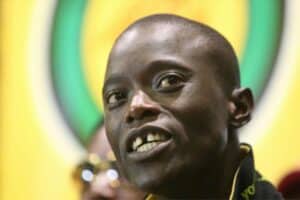Innocent lives are lost in this murderous game – even ordinary members who attend party meetings are now targets.

It has been proven many times that being an ANC councillor or a mere branch executive today is putting your life on the line in the party’s ongoing jostling for power and the characteristic corruption that has permeated its inner core.
Sadly, innocent lives are lost in this murderous game because even ordinary members who attend party meetings are now targets.
The recent drive-by shooting of some women in KwaZulu-Natal is a continuation of a trend that has turned the province into a killing field.
Non-members are not spared either as we have seen prominent whistleblowers being assassinated (Babita Deokaran) or poisoned (Angelo Agrizzi) or followed by unknown people because they are not protected by the state.
If these individuals and others were in state-sponsored witness protection programmes, Deokaran would still be alive today.
And Agrizzi, who provided crucial evidence to the Commission of Inquiry into State Capture about how top politicians and state officials connived with Bosasa bosses to steal taxpayers’ money, wouldn’t be surviving on ventilators today.
The state should have considered the fact that Agrizzi volunteered information and assisted in unveiling the depths of the corruption at Bosasa.
Similarly, Deokaran should have been provided with bodyguards, considering the high stakes in the personal protective equipment corruption saga of which she was a whistleblower.
The number of suspects arrested in connection with her murder is indicative of the seriousness of corruption in our country and how sophisticated its perpetrators are in trying to conceal their identity and avoid jail time.
Whether we like it or not, the ANC in power is different to what it used to be when it was established on 8 January 1912 as a liberation movement. The party must accept that.
There was a sense of pride to be associated with an organisation that had among its leaders Nobel Peace Prize laureates like Albert Luthuli and Nelson Mandela, and the highly revered Oliver Tambo.
Although they radicalised the ANC as members of its youth league in the 1940s, these leaders avoided violent confrontation with the regime in keeping with the original party principle of nonviolent struggle.
Even as the regime rejected dialogue, the ANC continued with its peaceful struggle, including a decade-long defiance campaign in the ’50s.
With its leaders in jail and the organisation banned, it was faced with two choices – abdicate or fight. The launch of uMkhonto we Sizwe on 16 December 1961 marked a significant milestone.
The 1982 Maseru raid by apartheid security forces that massacred ANC members and Lesotho citizens became the turning point.
The leadership was forced to change strategy and resolved to hit soft targets. Prior to that, the ANC strongly pursued the other pillars of its struggle such as sanctions against the apartheid regime, mass mobilisation and underground activities.
The ANC will never be the same again.
Even with the current efforts by Cyril Ramaphosa to unite it, corruption is a permanent phenomenon.
Support Local Journalism
Add The Citizen as a Preferred Source on Google and follow us on Google News to see more of our trusted reporting in Google News and Top Stories.






